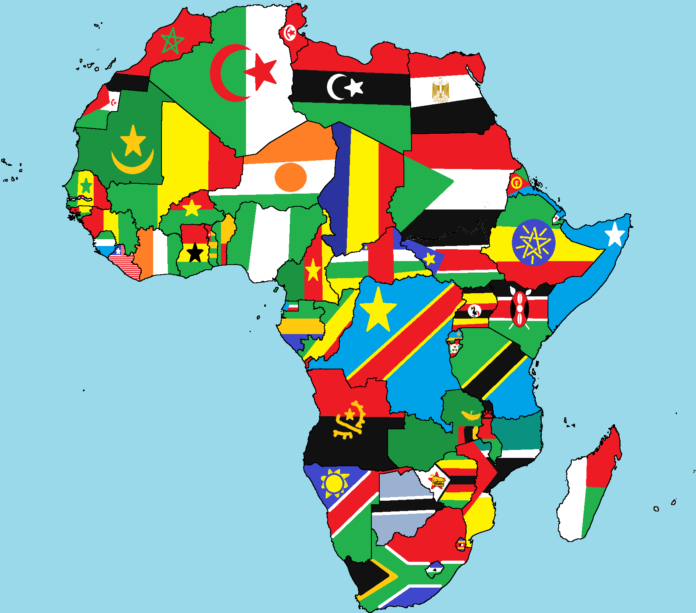President Muhammadu Buhari on Thursday, joined African leaders in Dakar, Senegal to launch “the largest financial package ever mobilised in the history of the International Development Association (IDA) – $93billion – geared towards a “robust and resilient economy for Africa.”
Seventy percent of the global fund will be spent on African countries between now and 2027, with Nigeria getting the biggest cut among the African States.
President Buhari, who was personally present at the event convened by Macky Sall, the President of the Republic of Senegal and Chairperson of the African Union.
In his submission at the Opening Dialogue of African Heads of State on Development Challenges and Priorities at the International Development Association (IDA) Summit for Africa, stressed that in view of the current challenges faced by world economies, the Nigerian government is determined to ensure that the economy is able to withstand the shocks by building a resilient economy capable of creating jobs.
This, according to him, will be achieved by looking inwards and adding value to the commodities produced in the country.
He, therefore, called on global partners for concerted efforts to help in the realisation of these objectives.
“I wish to therefore call for concerted global efforts to mitigate and sustain food systems.
“These efforts must involve key stakeholders, including Governments, Farmers, Investors, Multilateral Organizations, Regional Bodies, International Financial Institutions, Private Partners and Civil Societies.
“As African countries continue to grapple with the devastating impact of the COVID-19 pandemic and now the Russian-Ukraine war, the continued support from the World Bank Group, particularly from the IDA is critical to help us meet financial needs.”
He noted however, that “Nigeria’s priority amidst these global challenges is to build the resilience of our economy and drive jobs-rich growth. Therefore, our focus is on the transformative scale-up of industrialisation, to be driven by Backward Integration and Export Development based on value-addition to key commodities and access to new markets.”
According to the President, “In order for us and in particular Nigeria to achieve these priorities, we must continue to build partnerships and global solidarity that will address the challenges of the most vulnerable population and look forward to stronger collaboration among members of the International Development Association.”
President Buhari expressed confidence that the Summit will build on the Abidjan Declaration of 2021 and comprehensively address the debilitating effects of COVID-19, Climate change, insurgency and lately, the war in Ukraine.
“As we gather here today, I am confident that we will consolidate on the resolutions adopted at the previous high-level meeting on the IDA, that was graciously hosted by President Alassane Ouattara of Cote d’Ivoire in Abidjan in July 2021, and which highlighted the need for an ambitious replenishment of the IDA-20, to support Africa’s economic recovery agenda, following the shocks of the COVID-19 Pandemic.”
“The situation,” he stressed, “has been particularly difficult for us in Africa, as the COVID-19 pandemic and the conflict in Ukraine have continued to increase our development challenges, with many countries on the continent experiencing a prolonged severe food crisis, dwindling government revenue, rising levels of unemployment, widening infrastructural needs over the past three years and the consequences of a preponderant debt burden, in efforts to mitigate these problems.”
The Nigerian leader commended the World Bank and the IDA for their interventionist programmes designed to address areas germane to the African continent like Agriculture, Technological Innovation and Gender Matters among others, aligning “with Nigeria’s post-COVID-19 Economic Sustainability Plan, which has a major component, called the Agriculture for Food and Jobs Programme, where we seek to leverage suitable technologies to build a resilient food system for the country.
“I must commend the current initiatives by the World Bank Group, particularly the donor countries of the International Development Association, for the robust Ninety-Three Billion US Dollars ($93 billion) which is the 20th replenishment package (IDA-20), to help low-income countries respond to the COVID-19 crisis and build a greener, more resilient and inclusive future.
The decision to shorten the IDA-19 period and advance the IDA-20 replenishment by one year, in response to urgent needs is highly commendable and greatly appreciated.
“I am pleased to also note that this is the largest financial package ever mobilized in the history of the IDA and this package will prioritize some key areas such as: Agriculture and Food Security, Human Capital, Climate Change Adaptation, Bridging the Gender Gap, Job Creation, Digital and Technological Innovation, among others.”
The President lamented the disastrous effects of climate change on the African continent, urging for the sustenance of collective efforts to build climate resilient economies, specifically recommending for consideration, “the funding of a project to recharge Lake Chad from the Ubangi River. This lake has shrunk by ninety-percent over the years and caused incalculable damage to the socio-economic fabric of the 30 million inhabitants around the lake.”
On the debt issue, President Buhari said that developing countries which had faced unsustainable debt burdens even before the pandemic, are now dealing with a new wave of deepening debt as vital public financial resources are allocated to external debt servicing and repayments, at the expense of domestic financing for critical developmental needs.
President Buhari, who was later conferred with the highest National Honour of the Republic of Senegal, “L’ Ordre National De Lion Senegal (The National Order of the Senegal Lion) thanked his host, President Macky Sall, for the honour, extolling the excellent diplomatic relations between Nigeria and Senegal which have spanned over sixty years having started informal interactions for a longer period.
“Our people share a lot in common, especially in the areas of culture, religion and trade. Indeed, the city of Kaolack is now home to a large population of Nigerians.
“This award is a clear testament to the continued growth and resilience of our bilateral relations and also our solidarity at the subregional, regional and global levels.
“We see our relationship with Senegal as a very special one and will certainly continue to give it priority in the future,” he said.




